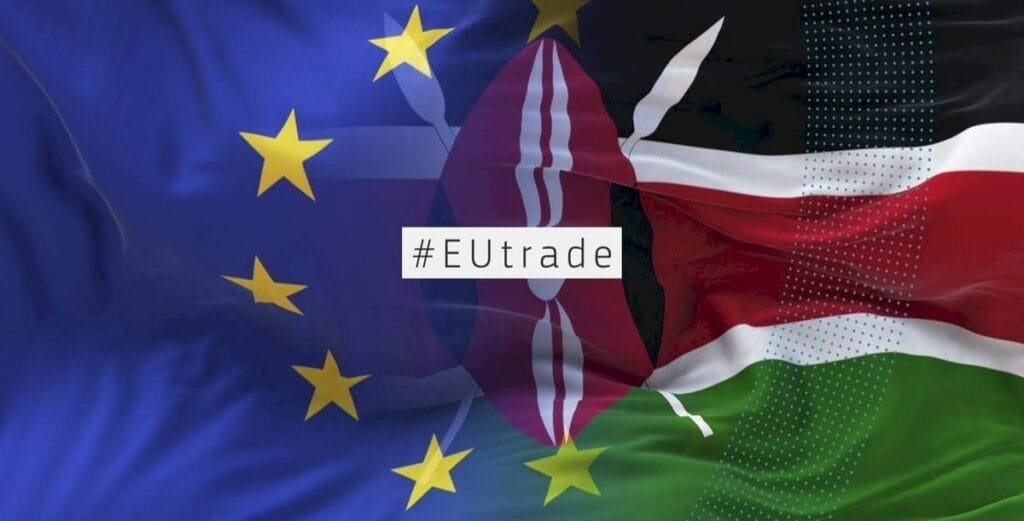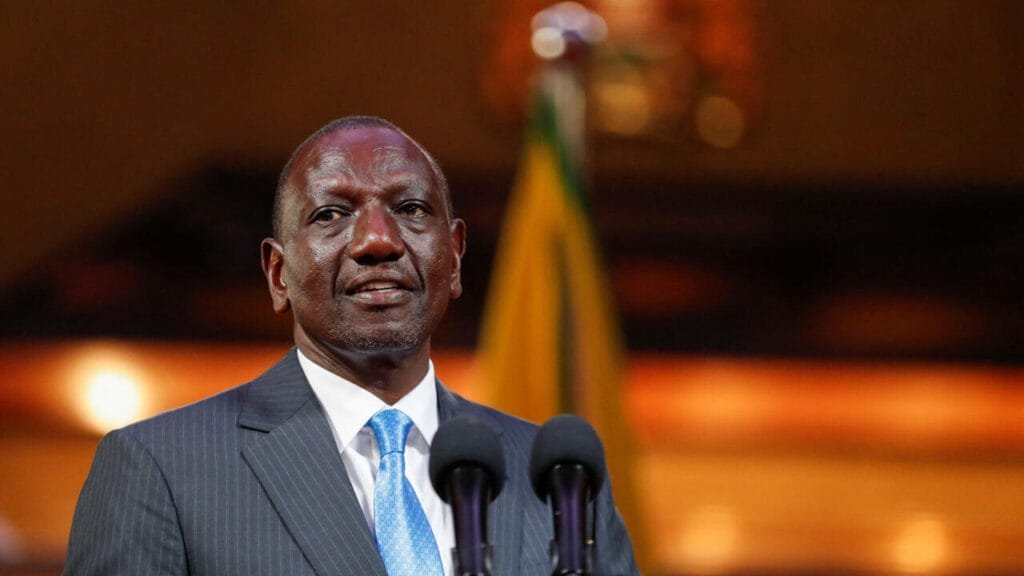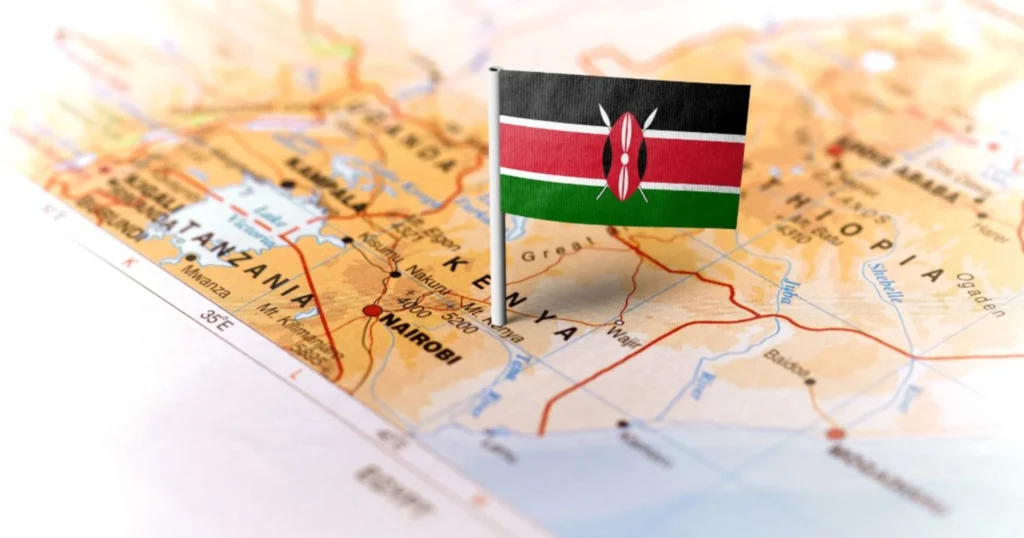In the sophisticated world of international trade, agreements and partnerships often clash, leaving nations in precarious positions as they strive to balance economic growth with domes- tic production. Such is the case for Kenya, a country at the crossroads of conflicting trade deals between the East Africa Community (EAC) and the European Union (EU), particularly with regards to tariffs on whiskies and wines. As Nairobi grapples with the repercussions of its recent decisions, the implications for its economy and future trade relations loom large.
Kenya’s dilemma stems from its adherence to both regional and international trade agreements. On one hand, as a member of the EAC Customs Union, Kenya is obligated to apply a higher tariff of 35 percent on imported wines and whiskies to promote local production, in line with the union’s objectives. However, this clashes with the Economic Partnership Agreements (EPAs) signed with both the EU and the United Kingdom, which stipulate a lower import duty of 25 percent.
The crux of the issue lies in the disparity between the tariff rates prescribed by the EAC and those outlined in the EPAs. Under the WTO agreement, countries in the EU and UK enjoy protec- tions for products like Scotch Whiskey, Tequila, Champagne, and Bourbon, preventing their manufacture in other nations. Consequently, Kenya finds itself in a bind, torn between honoring its commitments to regional integration and complying with the terms of its trade agreements with Europe.
Robert Waruiru, a tax expert, aptly highlights Kenya’s predicament, noting that while the EAC protocol mandates adherence to the Common External Tariff (CET), theEPAs offer reciprocal lower rates for imports from the EU. This misalignment under- scores the urgent need for a revision of the CET bands to harmonize tariff structures and mitigate the discord between regional and international trade policies.
Complicating matters further is Kenya’s decision to pursue bilateral trade deals with the UK independently of its EAC counterparts. While the EPA with the UK is operational, Kenya’s unilateral action has raised questions about the cohesion and solidarity within the East African bloc. The discrepancy in tariff rates between the EU and UK agreements further stresses the difficulties of global trade dynamics while safe- guarding domestic interests.
Treasury Cabinet Secretary Njuguna Ndung’u emphasizes the importance of adhering to the standstill clause within the EPAs, which pro- hibits the increase of applied customs duties for products subject to liberalization under the agreements. However, as Kenya grapples with the implications of its trade policies, the need for clarity and coherence in its approach becomes increasingly apparent.
Navigating Kenya’s Trade Turbulence: Balancing Tariffs and Global Agreements
In 2021, Kenya’s imports of hard liquor, primarily whiskies from the UK, amounted to a significant $23.7 million, according to the Observatory of Economic Complexity (OEC). Additionally, wines valued at $2.01 million were imported from France, an EU member state. The imposition of higher tariffs aimed to stimulate domestic production of these products, aligning with Kenya’s economic objectives.
However, the decision to charge a higher duty of 35 percent has triggered concerns, particularly among major importers such as the East African Breweries Limited (EABL). Under the geographical indication clause of the WTO agreement on Trade-Related Aspects of Intellectual Property Rights (TRIPS), products like Tequila, Scotch Whiskey, and Champagne are protected, restricting their manufacture to their countries of origin. This protection ensures product quality, reputation, and other characteristics, posing challenges for major importers like EABL.
Since the implementation of the higher tariff in 2022, imports of Scotch Whiskey, including popular brands like Johnnie Walker, have plummeted by 24 percent in volumes, while exports from Kenya have dropped by 42 percent.
These declines underscore the immediate impact of tariff adjustments on trade flows and economic activities.
Moreover, there are apprehensions that countries with which Kenya has signed EPAs, namely the EU and the UK, may reciprocate with unfavorable trade measures. The potential retaliation adds further complexity to Kenya’s trade landscape, highlighting the importance of strategic diplomacy and negotiation.
In response to the challenges posed by the conflicting tariffs, Kenya out- lined its Medium-Term Revenue Strategy in 2023, aiming to lower the higher band of the Common External Tariff (CET) from 35 percent to a range of 15 to 20 percent. The move seeks to address implementation challenges associated with multiple tariff rates and streamline trade procedures.
The EAC implements a four-band CET structure, providing varying levels of protection to industries. However, the multiple rates have led to classification disputes and delays in cargo clearance, prompting Kenya to advocate for duty-free treatment for primary raw materials and capital goods, along with a unified duty rate for other imported goods.
Despite Kenya’s unilateral decision to sign EPAs independently, concerns remain regarding potential adjustments of tariffs. The acknowledgment within the EU-Kenya EPA underscores the anticipated challenges posed by Kenya’s solo engagement in trade negotiations. Collaborative efforts within the EAC and constructive dialogue with trading partners are crucial to achieving mutually beneficial outcomes.
Kenya-EU Deal Opens Door to Trade With Africa

Kenya’s recent Economic Partnership Agreement (EPA) with the European Union (EU) has sparked debate among critics and proponents alike. While some raise concerns about potential influx of cheap European imports, others see it as an opportunity for increased investments and expansion into broader African markets.
Critics of the EPA caution against the potential flood of cheap imports from Europe, citing examples such as powdered milk, which was not included in the liberalization measures. However, proponents argue that Kenya should focus on leveraging the agreement to attract investments and tap into the vast EU market worth €14 million ($15.5 million). With the permanence of the pact, investors can find assurance of long-term revenue, prompting them to diversify and expand their capacities.
Moreover, the EPA is expected to stimulate more EU investments targeting not only Kenya but also the wider Af- rican market, including the Common Market for Eastern and Southern Africa (Comesa), the East African Community (EAC), and the African Continental Free Trade Area (AfCFTA). This presents a significant opportunity for African nations to enhance trade relations and economic cooperation with Europe.
Despite concerns about potential competition in certain sectors, such as the dairy industry, the EPA includes provisions to protect sensitive industries. Products like whey powder, powdered milk, yogurt, cheeses, butter, and dairy spreads remain shielded from further liberalization, allowing Kenya to focus on developing these sectors into competitive industries capable of exporting globally.
Regarding the involvement of other East African Community (EAC) member states in similar EPAs, it is anticipat- ed that they will accede to the current document either individually or collectively. The agreement is designed to facilitate such entry, paving the way for increased collaboration and trade integration within the region.
In terms of intra-EAC trade, the EPA holds promise for enhancing trade relations between EAC partner states and the EU. Negotiated with input from all EAC countries, the agreement aims to stimulate trade not only between the EAC and the EU but also among EAC member states. Sectors like tea, where raw materials originate from multiple countries for auction in hubs like Mombasa, stand to benefit from enhanced trade facilitation and access.
Is Kenya Ready To Implement The Clauses On Climate, Labour Rights And Gender Equality?
Kenya’s commitment to implementing clauses on climate, labor rights, and gender equality within the Economic Partnership Agreement (EPA) reflects its dedication to ethical and sustainable business practices. The country’s aspiration to become a world-class producer of goods and services aligns with its efforts to adhere to internationally recognized standards for ethical production.
Kenya’s stance on environmental conservation, gender equality, and labor rights transcends external trade agreements. These principles are ingrained in the country’s domestic laws and policies, demonstrating its commitment to up- holding fundamental human rights and promoting sustainable development.
Drawing from the International Labour Organization’s (ILO) fundamental rights at work, Kenya prohibits practices such as child labor and forced labor, ensures freedom of association, prohibits employment discrimination, and promotes a safe and healthy working environment for all. These standards form the cornerstone of Kenya’s labor laws and are upheld irrespective of external agreements.
Similarly, Kenya has made strides in addressing gender discrimination by enshrining principles of gender equality in its domestic legislation. Measures to eliminate discrimination based on gender are integral to Kenya’s labor and gender standards, reflecting the country’s commitment to fostering inclusive and equitable workplaces.
By incorporating these principles into the EPA, Kenya signals its commitment to being a responsible and attractive destination for ethical and sustainable business ventures. The EPA serves as a platform for Kenya to showcase its dedication to upholding international norms and values, reinforcing its position as a conducive environment for businesses that prioritize ethical conduct and sustainability.
In essence, Kenya’s readiness to implement clauses on climate, labor rights, and gender equality within the EPA emphasizes its broader commitment to promoting responsible and sustainable economic development. By embracing these principles, Kenya not only strengthens its position in the global marketplace but also contributes to the advancement of ethical and sustainable business practices regionally and internationally.









